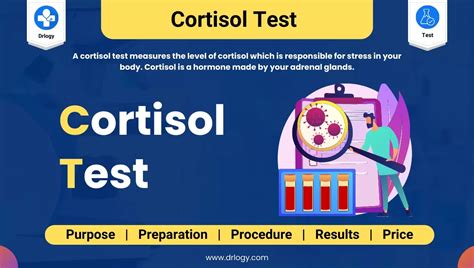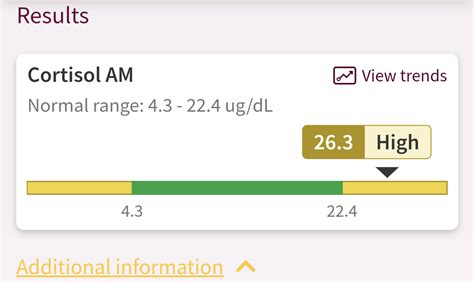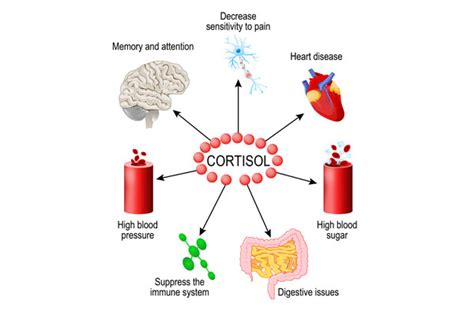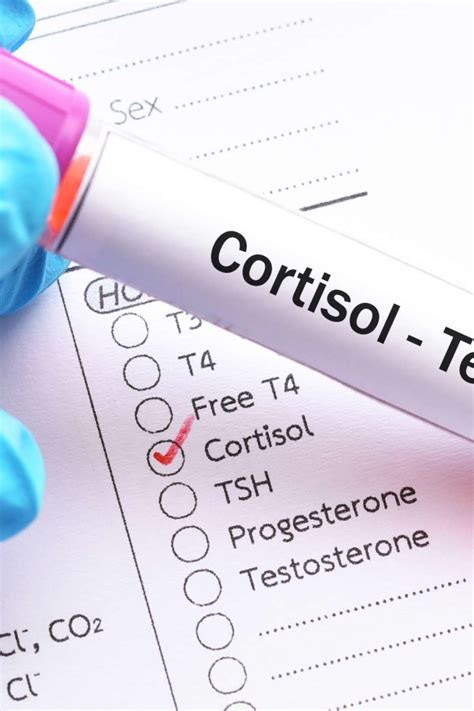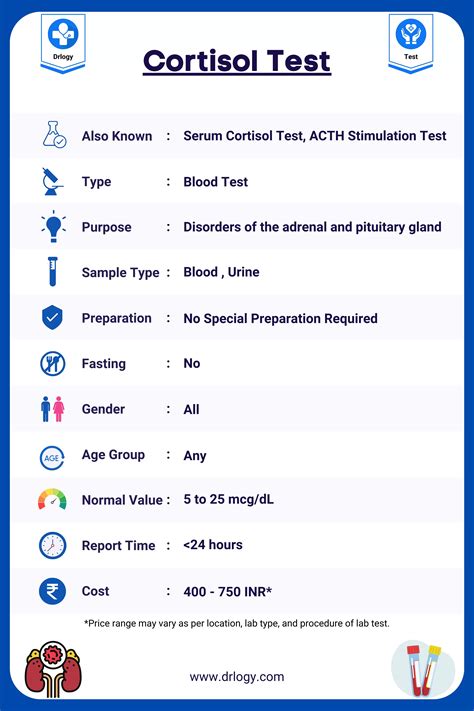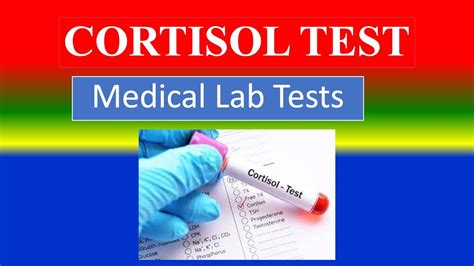Cortisol is often referred to as the "stress hormone" because its levels increase in response to stress. It plays a vital role in various bodily functions, including metabolism, immune response, and blood sugar regulation. Understanding cortisol and its effects on the body is essential for maintaining overall health and well-being. The cortisol test is a diagnostic tool used to measure the levels of cortisol in the body, helping healthcare professionals identify potential imbalances or disorders. In this article, we will delve into the world of cortisol testing, exploring its importance, benefits, and what the results can reveal about our health.
The human body is equipped with an intricate system that responds to stress, and cortisol is at the forefront of this response. When we experience stress, whether physical, emotional, or psychological, our adrenal glands produce cortisol to help us cope. While cortisol is essential for our survival, chronically elevated levels can have detrimental effects on our health, including weight gain, insomnia, and increased blood pressure. On the other hand, low cortisol levels can also lead to health issues, such as fatigue, decreased blood pressure, and a weakened immune system. Therefore, it is crucial to maintain a balance of cortisol in the body, and cortisol testing can help achieve this balance.
Cortisol testing is a valuable tool for healthcare professionals, enabling them to diagnose and treat cortisol-related disorders. One of the primary benefits of cortisol testing is its ability to identify Cushing's syndrome, a rare endocrine disorder caused by excess cortisol production. The test can also help diagnose adrenal insufficiency, a condition where the adrenal glands do not produce enough cortisol. Furthermore, cortisol testing can aid in the diagnosis of other health issues, such as thyroid disorders and polycystic ovary syndrome (PCOS). By understanding the results of a cortisol test, individuals can take proactive steps to manage their stress levels, maintain a healthy lifestyle, and prevent potential health complications.
Cortisol Test Types
There are several types of cortisol tests, each with its own unique characteristics and purposes. The most common types of cortisol tests include blood tests, saliva tests, and urine tests. Blood tests measure the levels of cortisol in the blood, typically taken in the morning when cortisol levels are at their highest. Saliva tests, on the other hand, measure the levels of cortisol in saliva, which can be collected at any time of the day. Urine tests measure the levels of cortisol in a 24-hour urine sample, providing a comprehensive overview of cortisol production throughout the day. Each type of test has its own advantages and disadvantages, and healthcare professionals will choose the most suitable test based on individual needs and circumstances.
How to Prepare for a Cortisol Test
Preparing for a cortisol test is crucial to ensure accurate results. Individuals should avoid strenuous exercise, stress, and certain medications that can affect cortisol levels. It is also essential to inform healthcare professionals about any medications or supplements being taken, as these can interfere with the test results. Additionally, individuals should avoid eating or drinking anything that can stimulate cortisol production, such as caffeine or sugary foods, for at least 12 hours before the test. By following these guidelines, individuals can help ensure that their cortisol test results are accurate and reliable.
Understanding Cortisol Test Results
Interpreting cortisol test results can be complex, and healthcare professionals will take into account various factors, including the type of test, individual circumstances, and medical history. Generally, cortisol levels are highest in the morning and decrease throughout the day. Abnormal cortisol levels can indicate a range of health issues, from Cushing's syndrome to adrenal insufficiency. The results of a cortisol test can also help healthcare professionals monitor the effectiveness of treatment and make adjustments as necessary. By understanding the results of a cortisol test, individuals can gain valuable insights into their health and take proactive steps to maintain a healthy balance of cortisol in their body.
Cortisol Test Benefits
The benefits of cortisol testing are numerous, and it can have a significant impact on our overall health and well-being. By identifying cortisol imbalances or disorders, individuals can take proactive steps to manage their stress levels, maintain a healthy lifestyle, and prevent potential health complications. Cortisol testing can also help healthcare professionals diagnose and treat underlying health issues, such as thyroid disorders or PCOS. Furthermore, cortisol testing can aid in the diagnosis of rare endocrine disorders, such as Cushing's syndrome, and help individuals receive the necessary treatment and support. By understanding the benefits of cortisol testing, individuals can take control of their health and make informed decisions about their well-being.
Cortisol Test Risks and Side Effects
While cortisol testing is generally a safe and effective diagnostic tool, there are some risks and side effects to be aware of. Blood tests, for example, may cause bruising, swelling, or pain at the injection site. Saliva tests are typically painless and non-invasive, but may cause some discomfort or dryness in the mouth. Urine tests may require individuals to collect a 24-hour urine sample, which can be inconvenient and may cause some discomfort. Additionally, cortisol testing may cause anxiety or stress, particularly if individuals are concerned about the results. However, these risks and side effects are typically mild and temporary, and the benefits of cortisol testing far outweigh the potential drawbacks.
Cortisol Test Cost and Insurance Coverage
The cost of cortisol testing can vary depending on the type of test, location, and healthcare provider. On average, the cost of a cortisol test can range from $50 to $200, although this may be higher or lower depending on individual circumstances. Many health insurance plans cover cortisol testing, particularly if it is deemed medically necessary. However, it is essential to check with insurance providers to determine the level of coverage and any out-of-pocket costs. Additionally, some healthcare providers may offer financing options or discounts for individuals who are uninsured or underinsured. By understanding the cost and insurance coverage of cortisol testing, individuals can make informed decisions about their health and well-being.
Cortisol Test Cost Breakdown
The cost of cortisol testing can be broken down into several components, including:
* Laboratory fees: $20-$50
* Healthcare provider fees: $20-$100
* Insurance copays or deductibles: $10-$50
* Additional testing or procedures: $50-$200
It is essential to note that these costs are estimates, and the actual cost of cortisol testing may vary depending on individual circumstances.
Cortisol Test Alternatives
While cortisol testing is a valuable diagnostic tool, there are some alternatives that individuals can consider. These alternatives may include:
* ACTH stimulation test: This test measures the levels of adrenocorticotropic hormone (ACTH) in the blood, which can help diagnose adrenal insufficiency.
* Insulin tolerance test: This test measures the body's response to insulin, which can help diagnose adrenal insufficiency or Cushing's syndrome.
* Thyroid function tests: These tests measure the levels of thyroid hormones in the blood, which can help diagnose thyroid disorders that may be related to cortisol imbalances.
* Saliva testing: This test measures the levels of cortisol in saliva, which can provide a non-invasive and convenient alternative to blood or urine tests.
Cortisol Test FAQs
What is a cortisol test?
+
A cortisol test is a diagnostic tool used to measure the levels of cortisol in the body, helping healthcare professionals identify potential imbalances or disorders.
What are the benefits of cortisol testing?
+
The benefits of cortisol testing include identifying cortisol imbalances or disorders, diagnosing underlying health issues, and monitoring the effectiveness of treatment.
What are the risks and side effects of cortisol testing?
+
The risks and side effects of cortisol testing include bruising, swelling, or pain at the injection site, as well as anxiety or stress related to the test results.
In conclusion, cortisol testing is a valuable diagnostic tool that can provide insights into our health and well-being. By understanding the benefits, risks, and alternatives of cortisol testing, individuals can take proactive steps to manage their stress levels, maintain a healthy lifestyle, and prevent potential health complications. We encourage readers to share their thoughts and experiences with cortisol testing, and to take action by speaking with their healthcare provider about the benefits of cortisol testing. By working together, we can promote a healthier and more balanced lifestyle, and take control of our overall health and well-being.

